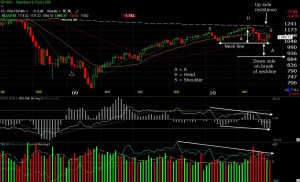Currency risk, events, regulations and trade opportunities keep the Forex markets moving. Every now and then, the price of one currency changes in relation to the price of another currency. The chance of that happening is called currency risk, and it has caused quite a few headaches for Forex traders over the years. Currency risk affect all traders and businesses whose ventures transcend national boundaries (or borders). There are several ways to curb currency risk: the most common are currency forwards, futures and options.
Forwards
Currency forwards are typically reserved for banks, corporations and other major players. They are legally binding contracts that pin the exchange rate of a currency on a future date with no down payment. They are considered over-the-counter instruments, which means there is no centralized exchange for them. This also means that there is no legal way of backing out if the situation becomes unfavorable, so in some cases a deposit is required to ensure compliance and control damage.
An alternative for smaller investors would be the money market hedge; it is not the first option traders go for these days (they usually turn to forwards, futures and options first), but it is certainly worth mentioning. It is a great means against currency fluctuations if currency forwards are not available or practical (and they usually aren’t). This is a complicated process involving bank accounts in different currencies, and several transactions; it is useful as a short term solution, but this is a topic for another article.
Currency Risk Management with Futures
Futures enable you to trade a fixed amount of currency at a fixed rate over a period of time. Their margin is low, they are simple, reliable standardized and common. On the other hand, they do require an upfront payment (margin) and they are a commitment which should be handled carefully as it puts the buyer in a bind and limits his options to either fulfilling the contract (the currency exchange is arranged at current exchange rates but is to be carried out at a later date) or cancel the trade altogether, selling the future at the prevailing price.
Options
For those investors who desire no obligations, currency options are the way to go. Holding a currency option entitles you to trade currency at a fixed rate over a period of time (optional), plus a small fee for the broker (not optional). However, the holder is under no obligation to complete the trade, especially if the conditions are adverse. If the spot rate is more favorable, you simply let your options expire and make the trade at the new exchange rate.
Conclusion
When it comes to curbing currency risk, hedging is the best way to accomplish this. All of the above-mentioned means are forms of hedging. As to which is best, it depends on the trader. Currency forwards are the most reliable, but unavailable to most. Options give the most maneuvering space and futures are the middle ground.

